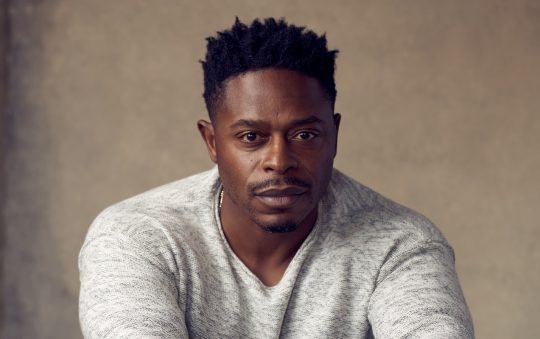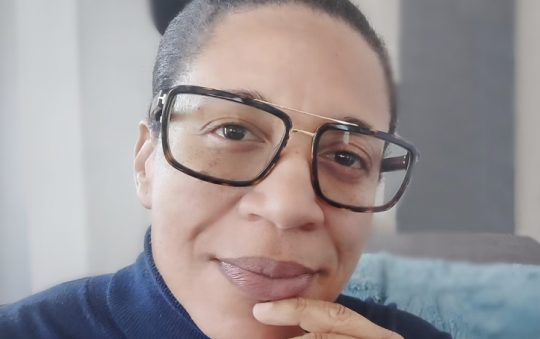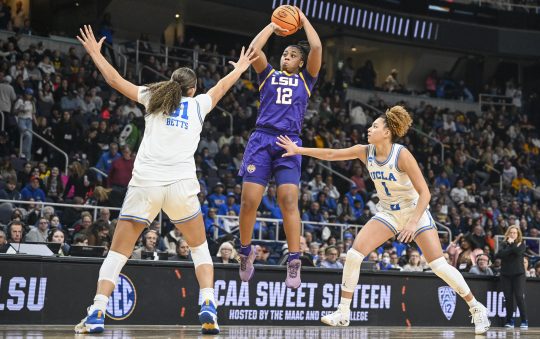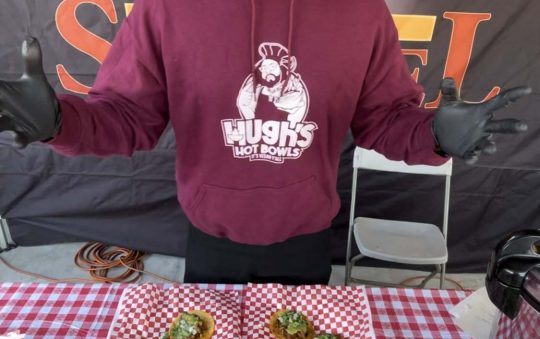
When the L.A. Sentinel first spoke to Ronald Turner, professionally known as DJ R-Tistic, in 2014, he was the recently crowned McDonald’s Flavor Battle Champion. In the near decade that’s followed, R-Tistic has become one of the most renown DJs in the city and abroad with international gigs in Columbia, Ghana, Jamaica, Jordan, Paris, Mexico, Nigeria, The Dominican Republic and more.
R-Tistic parlayed his deep knowledge of Hip-Hop and R&B into collegiate level guest lecturers, a series of masterclasses including one with LL Cool J’s company Rock The Bells in conjunction with Warner Bros entitled, “Hip Hop Diaspora” as well as his “Behind The Wheels” podcast with co-host EB available on Spotify and Apple Podcasts. R-Tistic speaks with the LA Sentinel about reinventing himself and shares his perspective on the current state of R&B music.
L.A. Sentinel: How do you book and prepare for international DJ gigs?
DJR: A lot of opportunities come from social media and being able to showcase that I can go wherever I need to and play in each place. The gig in Nigeria, a Nigerian promoter found me through one of my New Jack Swing videos. The majority of those [international] gigs, I was hired by Americans for different reasons; they could be having parties abroad, military gigs or travel trips. When I book a gig out of the country, I try to get there at least two days in advance to go to the clubs to see what people are responding to. It’s one thing to be a staple locally, to be able to travel means you have to be well versed in different cultures. Also going through playlists, listening to mixes, talking to other DJs, watching videos of certain parties and seeing what people respond to but oftentimes you won’t know until you’re there, especially if there’s a language barrier so you learn as you go.

LAS: What are your thoughts on the evolution of R&B as many people believe music was “better” in the ‘90s.

DJR: It’s definitely not the same regardless of if you think it’s better or worse now, because you have to look further back at things like musical training. From the 1970s through the 1990s, more musicians grew up playing in church and school so there was a lot more musicianship in music and you heard that in R&B. It became a lot more simplified when the Hip Hop influence came in. The New Jack Swing era was really when Hip-Hop and R&B first were married and since then R&B has been somewhat dependent on Hip-Hop especially when it came to the upbeat party tracks. A few years ago I realized rap has taken so much shine [from R&B]. Drake kind of made it where…it’s not his fault because there’s always a need for women to be sung to. Women are always going to have someone that’s singing to them and catering to them. With the Drake era came R&B artists’ music with a strong rap influence–a lot of profanity, it’s blatantly sexual, the production is alot more stripped down. Many people will say Kanye’s “808s and Heartbreaks” inspired the “Drake era”. To me, the biggest shift recently was Bryson Tiller “Trapsoul” (2015). A lot of the mainstream stuff is more simplified, with fewer chord changes, you don’t hear bridges, you don’t hear that build up. For us in our 30s we got to a point where it is harder for us to enjoy new R&B because we don’t connect to it in the same way. All of that to say R&B isn’t dead it’s been better the last few years. I’m a fan of Chloe x Halle, Ari Lennox, Lucky Daye. Even with that, without being considered an “old head” most modern R&B isn’t comparable to how plentiful it was in the 90s.

LAS: Sometimes you’re booked for several events in one day! What keeps you passionate about DJing especially with the repetitiveness of the music during parties? DJR: There’s always new music coming out and different ways to present it. As time goes on older music goes from being played out to becoming classic. Ten years ago, you weren’t hearing Tevin Campbell, “Can We Talk” in the club. It’s a song from ‘93 that came back. Alot of songs have cycles. When I first started DJing in the mid/late 2000s, I wasn’t playing Mario, “Just A Friend” or Usher, “You Don’t Have To Call”, because those were recently, “played out”. Every five to ten years there are certain songs from the previous era that come back. Also, themed parties are a big thing now and it wasn’t five years ago. DJ’s make blends and remixes that keep things fresh. It’s also about expanding because there are always new genres popping up like Dembo (from the Dominican Republic) and Jersey Club
LAS: Can you share some of the educational work you’re doing outside of DJing?
DJR: People probably don’t realize this but when I start music debates on Twitter, it’s research for me because long term, I want to be a professor of music and DJing, specifically Hip-Hop and R&B over the last 60 years. You might hear about the history of DJing and how the equipment has evolved but I don’t think anyone has really delved into the psychology of DJing–understanding how to work with different crowds i.e. bottle service clubs vs college parties vs house parties vs a restaurant vs a wedding. Every event is different and I want to be the person who really studies and teaches the various avenues of DJing.







